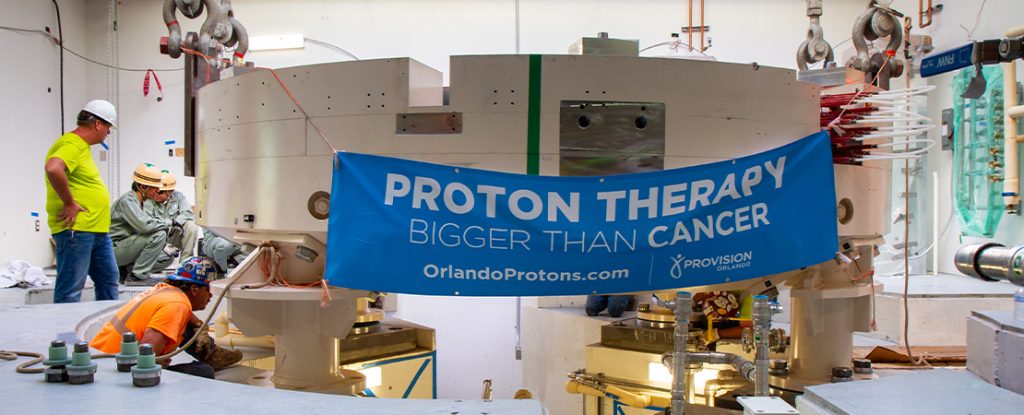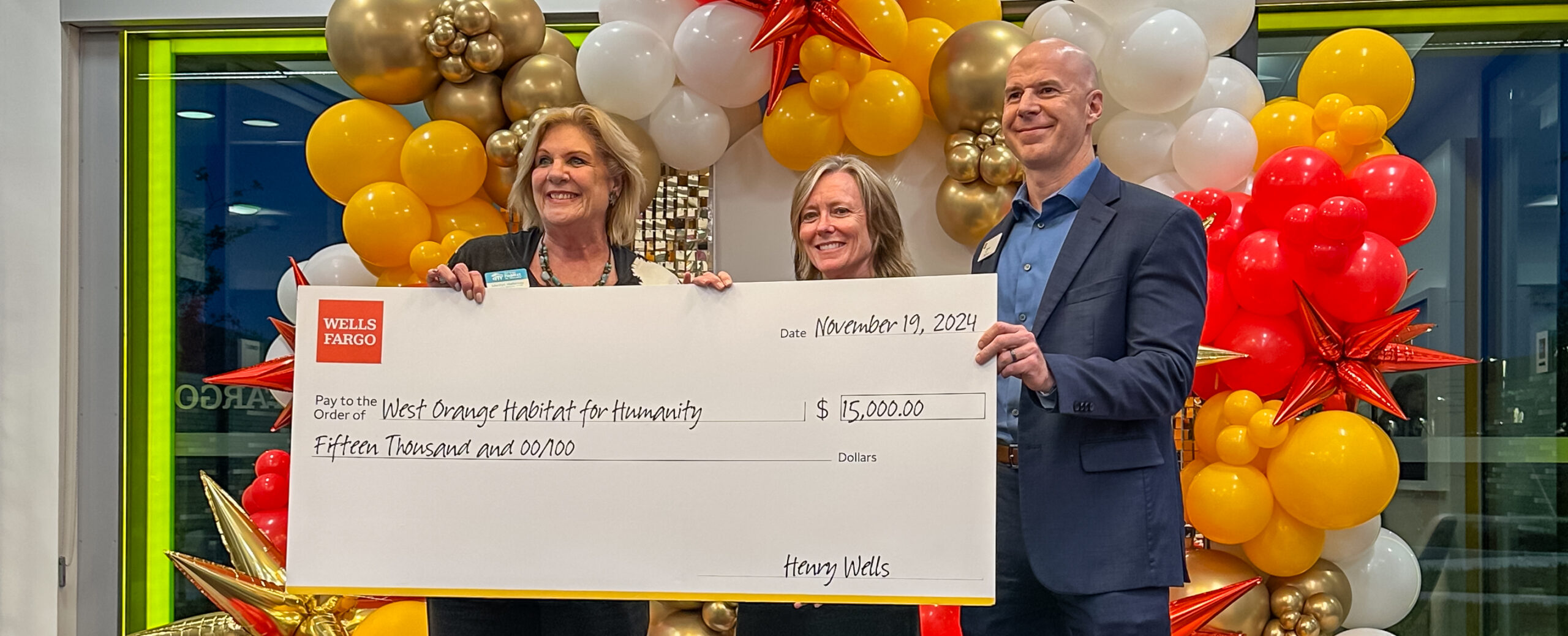Central Florida is one step closer to having two centers that offer proton therapy, an advanced form of radiation therapy for cancer treatment.
Since January, the Tennessee-based company Provision Healthcare has been building a structure in West Orange County to house a cyclotron, a 220-ton piece of equipment that generates the proton beam that’s used to kill cancer cells and is the heart of a proton therapy center.
On Wednesday, after crossing the waters from Japan and traveling from Cape Canaveral to Orlando, the 110-ton piece arrived on the back of a long flatbed truck at its new home in Hamlin, the centerpiece of Horizon West, one of the fastest-growing communities in the United States.
“That’s our big excitement. That’s a milestone in the project,” said Mary Lou DuBois, president of Provision Solutions.
Provision has big plans for its 17-acre campus. Once complete, Provision CARES Proton Therapy Orlando will be a free-standing comprehensive cancer center with three medical office buildings and a range of cancer therapies, including medical and radiation oncology and services such as imaging.
The company also has plans for a second center in Central Florida, currently scouting a location in Lake Nona.
Provision was first planning to establish a center at UCF Lake Nona Cancer Center — the former Sanford Burnham building that is now part of UCF — but then decided against it.
“It would probably cost more to refurbish that than build a new building,” said Terry Douglass, executive chairman of Provision Healthcare.
Once complete, the Provision campus in Horizon West will be the first free-standing cancer treatment center in Central Florida and the second proton therapy center following Orlando Health.
Provision officials said they’re not in town for competition.
“We are not tied to a specific hospital system,” said Douglass. “We encourage referrals from physicians and we encourage patients to consider our cancer center.”
Orlando Health’s proton therapy center, which opened in 2016, has treated more than 500 patients so far. Its officials said they’re not concerned about a second, or a third, proton therapy center in the area.
“Most of our volume is from our own patient referrals within our system,” said Dr. Naren Ramakrishna, director of proton therapy at Orlando Health. “Also, the machine is one thing, but there’s also the expertise. In terms of experience and expertise, we have a very strong department.”
When it comes to the number of proton therapy centers, Florida is somewhat of an outlier in the country.
There are 29 regional proton therapy centers in the United States, according to the National Association for Proton Therapy. Most states on the list have one or two proton therapy centers. Florida has five, not counting Provision’s upcoming sites in Horizon West and Lake Nona.
“Since 2006, there has been a six-fold growth in proton therapy centers in the U.S.,” said Stuart L. Klein, executive director of the UF Health Proton Therapy Institute in Jacksonville, in an email. “Florida’s population continues to grow and age and the incidence of cancer continues to increase in tandem.”
UF Health’s proton therapy center opened in 2006, the first in the Southeast at the time. A decade later, the Ackerman Cancer Center Proton Therapy Center opened nearby in Jacksonville. But its addition has had no impact on the UF practice, said Klein.
“We continue to operate near capacity and have added a fifth treatment room, which we will begin using for patient treatment in early December 2019,” said Klein.
Proton therapy is currently recommended for kids and adults who have tumors that are localized or may be close to critical organs such as the brain and spinal cord.
Unlike radiation therapy, which can damage the tissue surrounding the cancer cells, proton therapy beams can be shaped and targeted so that when they reach the tumors they stop, leaving the surrounding tissues mostly undamaged.
“The whole goal of proton beam therapy is to help reduce the total amount of radiation therapy that a patient gets exposed to and thereby hopefully reduce long term side effects of radiation therapy,” said Dr. Mark Mishra, a radiation oncologist at University of Maryland School of Medicine, who has published several studies on proton therapy.
The list of cancers that are candidates for proton therapy is growing and there are ongoing clinical trials to compare proton therapy with other forms of radiation therapy. Part of the goal is also to find out how patients fare in the long run.
Along with clinical evidence, insurance companies are slowly starting to reimburse proton therapy, although in some cases, the institutes have to appeal the denials. In other cases, patients have sued the insurance companies for denying proton therapy.
“It’s a constantly shifting landscape,” said Ramakrishna of Orlando Health. “I think, Medicare tends to be more generous in terms of coverage. … Private insurers have widely varying degrees of acceptance of proton therapy for different indications. So you have to make a case for it for them to cover it.”
Officials at Provision said they’ve seen increased coverage from private payers and Florida is one of the best locations for private insurance coverage of proton therapy.
“That’s another reason that we believe the Florida market will be very successful,” said Douglass of Provision. He added that the company is planning to add several other locations across the state.
The second piece of Provision’s cyclotron — also 110 tons – is scheduled to arrive at Hamlin on Thursday.
The center, which will boast three treatment rooms, is expected to open in the first quarter of 2021.
Read Full Story >>
Naseem S. Miller | Orlando Sentinel




